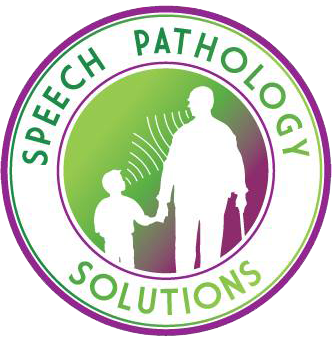Autism spectrum disorder is a complex neurodevelopmental disorder that affects communication, behavior, and social interaction. For many children with autism, communication can be a significant challenge, often leading to feelings of frustration and isolation. However, with the right intervention and support, these children can make remarkable progress. Autism speech therapy is one of the most effective interventions for addressing communication challenges autistic children face, and it can help transform their lives.
Understanding the Communication Challenges in Autism
Every child with autism is unique, and so are their communication challenges. Some children might be non-verbal, while others may have an extensive vocabulary but struggle with the nuances of conversation.
Delayed speech or lack of speech: Some children with autism may not speak at all, while others might start speaking later than their peers.
Difficulty in understanding non-verbal cues: Non-verbal communication, like facial expressions and gestures, can be puzzling for many children with autism.
Echolalia: This involves repeating words or phrases they’ve heard, which might be immediate or delayed.
Challenges in maintaining a conversation: While they might be able to start a conversation, continuing it in a back-and-forth manner can be challenging.
The Role of a Speech Pathologist in Autism
Speech pathologists play a pivotal role in helping children with autism overcome their communication challenges.
Assessing Communication Challenges: Speech pathologists conduct assessments to understand verbal and non-verbal challenges and determine the specific areas where a child with autism needs support. By identifying the root causes and patterns of communication difficulties, therapists can set clear goals and benchmarks for progress.
Developing Personalized Therapy Plans: Recognizing that every child is unique, speech pathologists create tailored plans that cater to individual strengths and challenges. These plans are not one-size-fits-all, they are meticulously crafted to align with the child’s specific needs, ensuring maximum efficacy. By focusing on a child’s strengths while addressing their challenges, speech pathologists can foster a positive and encouraging therapeutic environment.
Collaboration: Speech pathologists often work in tandem with other professionals, educators, and parents, ensuring a comprehensive approach to the child’s development. This collaborative approach ensures that the child receives consistent support across all environments, be it at home, school, or in therapy sessions.

Key Benefits of Autism speech therapy
Autism speech therapy offers a myriad of benefits.
Improved Verbal Communication: Through various techniques, children can enhance their speech clarity and expand their vocabulary. This improvement not only aids in expressing their needs and emotions but also boosts their confidence in social settings. As their verbal skills grow, they can more effectively share their thoughts and participate in conversations.
Enhanced Non-verbal Communication: Children are taught to understand and use gestures, facial expressions, and body language effectively. This training helps bridge the gap when verbal communication might be challenging or insufficient. By mastering non-verbal cues, children with autism can better navigate social situations and convey their feelings or intentions without words.
Social Communication Skills: Skills like initiating and maintaining conversations, understanding social cues, and building relationships are honed. These skills are crucial for forming friendships, succeeding in educational settings, and integrating into community activities. As children practice and refine these skills, they become more adept at interacting with peers and adults alike.
Overcoming Speech Repetitions: Strategies are employed to reduce echolalia, promoting more meaningful speech. By transitioning from repetitive speech patterns to more spontaneous language, children can engage in richer, more varied conversations. This shift not only enhances their communicative abilities but also aids in forming deeper connections with those around them.
Improved Understanding: Techniques are used to bolster listening skills and comprehension, ensuring children can understand and respond appropriately. By enhancing their ability to process and interpret information, children can better follow instructions, engage in discussions, and participate in group activities. This improved understanding lays the foundation for academic success and more fulfilling social interactions.
Speech Therapy Techniques Tailored for Autism
Several evidence-based techniques are employed in autism speech therapy.
Picture Exchange Communication System(PECS): This visual-based system allows children to communicate using pictures, making it easier for them to express their needs and feelings. PECS is especially beneficial for non-verbal children or those with limited speech capabilities. By using a set of symbols or images, children can convey their desires, emotions, or even pain, reducing frustration and promoting more effective communication.
Social Stories: These are short narratives that depict a social situation, helping children understand and respond appropriately. Social stories break down complex social interactions into understandable steps, providing children with a clear framework of what to expect and how to behave. Whether it’s sharing toys, waiting in line, or greeting a friend, social stories offer a visual guide to navigating various social scenarios, making them less daunting for children with autism.
Video Modeling: Videos are used to demonstrate specific behaviors or skills, allowing children to learn through observation. This method capitalizes on the visual learning strengths of many children with autism. By watching a behavior or skill being performed, children can mimic and practice it in real-life situations. From basic life skills like tying shoelaces to more complex social interactions, video modeling provides a dynamic and engaging way to teach.
Auditory Training: This focuses on enhancing listening and comprehension skills, ensuring children can process auditory information effectively. Children with autism often experience auditory processing challenges, which can hinder their understanding of spoken language. Through auditory training, children are exposed to various sounds, speech patterns, and auditory exercises, helping them discern and interpret sounds more accurately. This training aids in improving their attention, memory, and comprehension of auditory stimuli.
The Role of Family in Speech Therapy
Family plays an indispensable role in speech therapy for autism. Consistent practice at home can reinforce the skills learned during therapy sessions. When parents are actively involved, they can better understand their child’s communication needs, leading to a more supportive environment. The emotional and social benefits of such involvement are profound, fostering a deeper bond between the child and family members.

Experience the Difference with Speech Pathology Solutions
For parents and caregivers, understanding the benefits of autism speech therapy is the first step towards empowering their child. At Speech Pathology Solutions, the mission is clear: to provide comprehensive, affordable, and convenient speech-language pathology services to residents of Monmouth, Ocean, and Atlantic Counties. With over 20 years of experience and a dedicated team led by Kristy Pantano, a member of the International Association of Orofacial Myology, you’re ensured the highest quality of private speech therapy in NJ. Don’t let communication challenges hold your child back. Reach out to Speech Pathology Solutions today, and together, let’s help your child be the best version of themselves, gain confidence to speak with ease, and connect deeply & genuinely with others.

